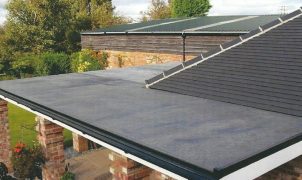When it comes to home improvement, few spaces are as pivotal to the success of a project as the kitchen. It’s the heart of the home, where families gather, meals are prepared, and memories are made. So, whether you’re thinking of transforming your kitchen into a more functional and aesthetic space or improving the value of your home, deciding between a remodel and a renovation can be a daunting choice. Both options come with distinct advantages and challenges, and understanding the difference between the two—and which is the better fit for your home improvement goals—is crucial to making an informed decision.
Understanding the Difference: Remodel vs. Renovate
Before diving into the pros and cons of each, it’s important to clearly define what it means to remodel versus renovate. Though these terms are often used interchangeably, they actually refer to different processes in home improvement.
-
Remodeling: Remodeling typically involves altering the structure or layout of a room, changing the design or function, and often involves more extensive work. In the context of a kitchen, this could mean tearing down walls, relocating appliances, adding new cabinetry, or even reconfiguring the entire layout. Essentially, remodeling transforms the space into something new, often requiring professional expertise and a larger budget.
-
Renovating: Renovating, on the other hand, generally refers to restoring or updating an existing space without making significant structural changes. This might include replacing old countertops, upgrading fixtures, repainting walls, or installing new flooring. A renovation refreshes the space while maintaining its overall layout and structure. Renovating is often less intrusive and more affordable than remodeling but still offers considerable aesthetic improvements.
Now that we have a clear understanding of these terms, let’s examine when each approach works best in the context of home improvement.
Remodeling: A Transformative Approach to Your Kitchen
Remodeling a kitchen is an investment in the future of your home. It’s a bold choice that can breathe new life into a space, making it more functional, modern, and tailored to your specific needs. Here are several reasons why a kitchen remodel might be the right option for you:
1. Complete Overhaul of Space and Functionality
If your kitchen feels outdated or no longer serves your family’s needs, a remodel can be a game-changer. Perhaps the layout is cramped, appliances are outdated, or the kitchen simply lacks the flow necessary for efficient cooking and entertaining. A remodel can address all these issues by reconfiguring the space to better suit your needs. You can change the layout entirely, open up walls for a more open-concept design, or add islands or breakfast bars to increase functionality.
2. Long-Term Investment and Increased Home Value
A well-executed kitchen remodel can significantly increase the value of your home, especially if you plan to sell in the future. In fact, the kitchen is one of the most important factors that potential buyers consider when purchasing a home. According to real estate experts, you can expect to recoup a substantial portion of your remodeling investment—typically between 50-80%—when you sell your property.
Moreover, remodeling allows you to incorporate the latest design trends and technology, from high-end appliances and energy-efficient lighting to customized cabinetry and countertops. These modern touches not only improve the usability and aesthetics of your kitchen but can also appeal to discerning buyers looking for an updated, move-in-ready space.
3. Customization and Personalization
A remodel allows you to express your personal style. Whether you prefer a sleek, contemporary design or a more rustic, farmhouse aesthetic, remodeling gives you the freedom to select materials, colors, and finishes that reflect your unique taste. With a remodel, you can incorporate high-end elements like granite countertops, custom cabinetry, and smart appliances that elevate the overall design and functionality of the space.
4. Disruption and Cost Considerations
While the benefits of remodeling are substantial, it’s important to acknowledge the potential drawbacks. Remodeling is often a costly and disruptive process. The scope of work involved, particularly if structural changes are being made, can lead to higher labor and material costs. Additionally, the process can take several weeks or even months, during which time you may be without a functioning kitchen.
Renovating: Refreshing Your Kitchen with Less Disruption
Renovating a kitchen offers a more budget-friendly and less disruptive approach to home improvement. If your kitchen is in relatively good condition but simply feels outdated or lacks certain features, a renovation may be the perfect solution. Here’s why renovating might be the better option for some homeowners:
1. Less Disruption, Faster Turnaround
If you’re looking to improve the appearance and functionality of your kitchen without the hassle of a full-scale remodel, a renovation is a great choice. Renovations tend to be less invasive and quicker to complete. For example, you can replace outdated countertops, install new backsplashes, or update the flooring with minimal downtime. If you’re still able to cook in your kitchen during the renovation, it can be much easier to live with compared to a full remodel.
2. Cost-Effective Solutions
Renovating is generally more affordable than remodeling, as it focuses on updating and refreshing existing elements rather than changing the layout or structure of the space. If your kitchen already has a functional layout and you’re simply looking to improve its aesthetic appeal, a renovation can provide a high return on investment at a fraction of the cost of a remodel. You can still replace old appliances, cabinets, and fixtures, making the space feel new and modern without the hefty price tag associated with remodeling.
3. Preserving the Existing Layout
A renovation is ideal if you’re satisfied with your current kitchen layout and structure but want to update its look. For example, if your kitchen has a traditional galley layout and you’re happy with how it functions, you don’t need to undergo a costly remodel to change the layout. Instead, you can focus on upgrading the cosmetic elements—new countertops, fresh paint, updated lighting, and modern fixtures—giving your kitchen a fresh look without a significant overhaul.
4. Less Commitment to Major Changes
While a remodel is all about significant transformation, a renovation allows for smaller, incremental improvements. This approach gives you the flexibility to make changes as your budget permits, and it’s less of a long-term commitment. It’s a great option for homeowners who want to update their space without fully committing to a major redesign.
What Works Best for Your Home?
Deciding between remodeling and renovating ultimately comes down to your goals, budget, and timeline. Here are some key questions to help you determine which option is right for you:
-
Do you need more space or a new layout? If you feel cramped or the flow of your kitchen doesn’t work for you, remodeling is your best bet. Remodeling allows you to create a more functional and spacious layout.
-
Are you aiming to increase your home’s value? If you’re planning to sell your home soon and want to attract more buyers, a remodel may be worth the investment, particularly if your kitchen is outdated and in need of significant upgrades.
-
Is your kitchen still structurally sound but just looks outdated? If your kitchen still works well but simply needs a facelift, a renovation is an efficient and cost-effective way to refresh the space without disrupting your daily life.
-
What’s your budget and timeline? Remodeling typically requires a larger budget and a longer time frame due to its complexity, while renovations are faster and more budget-friendly.
Conclusion: The Right Choice for Your Home Improvement Goals
Whether you choose to remodel or renovate, the key to a successful kitchen transformation is making decisions based on your needs and priorities. A remodel can provide the dramatic changes that will completely reimagine your kitchen, increasing both its functionality and market value. However, if you’re happy with the current layout and are primarily looking to update aesthetics, a renovation offers a more cost-effective, less disruptive solution. Whatever path you choose, both remodeling and renovating can significantly enhance the heart of your home, ensuring that your kitchen remains a place where you’ll enjoy spending time for years to come.


















